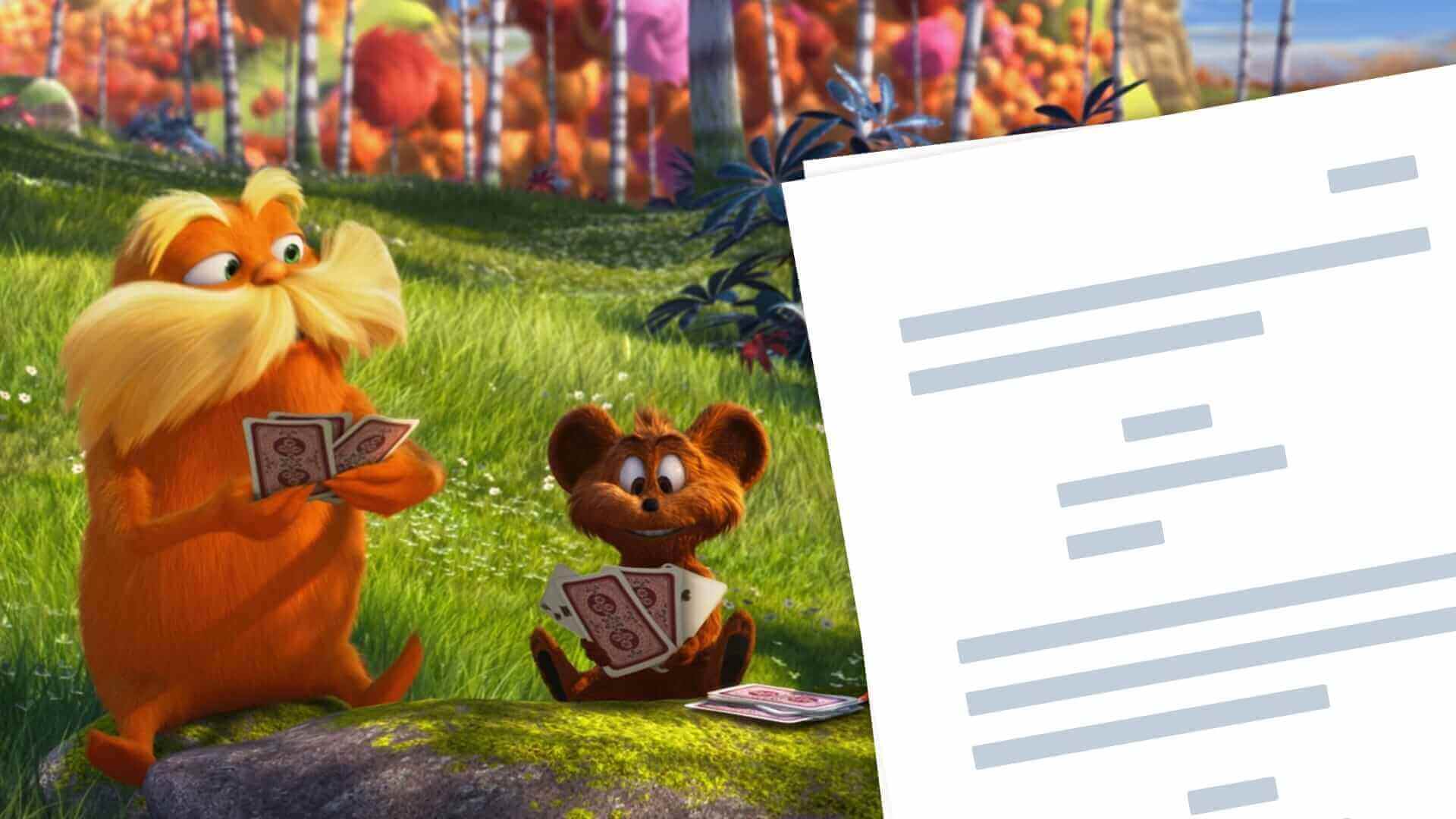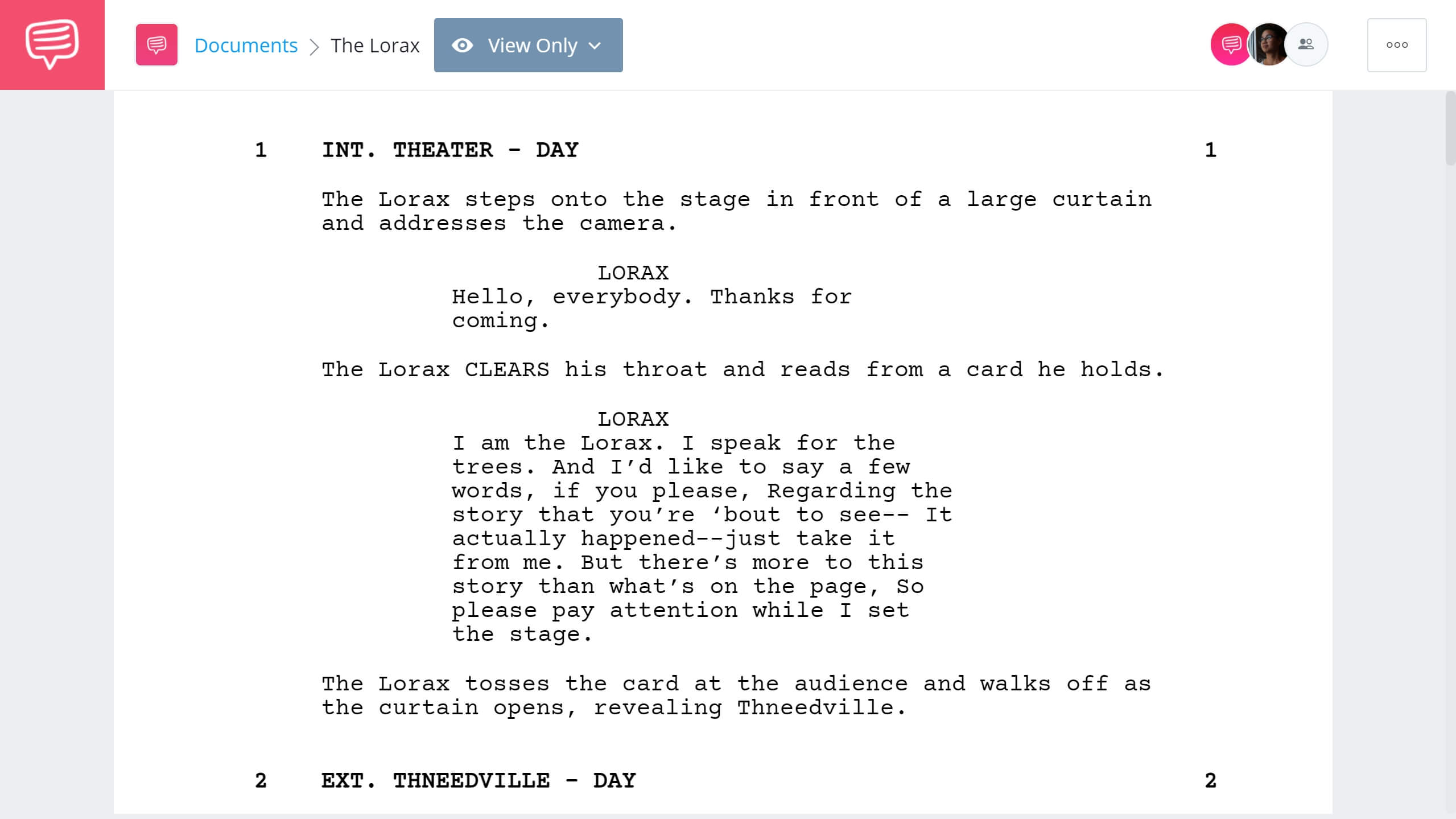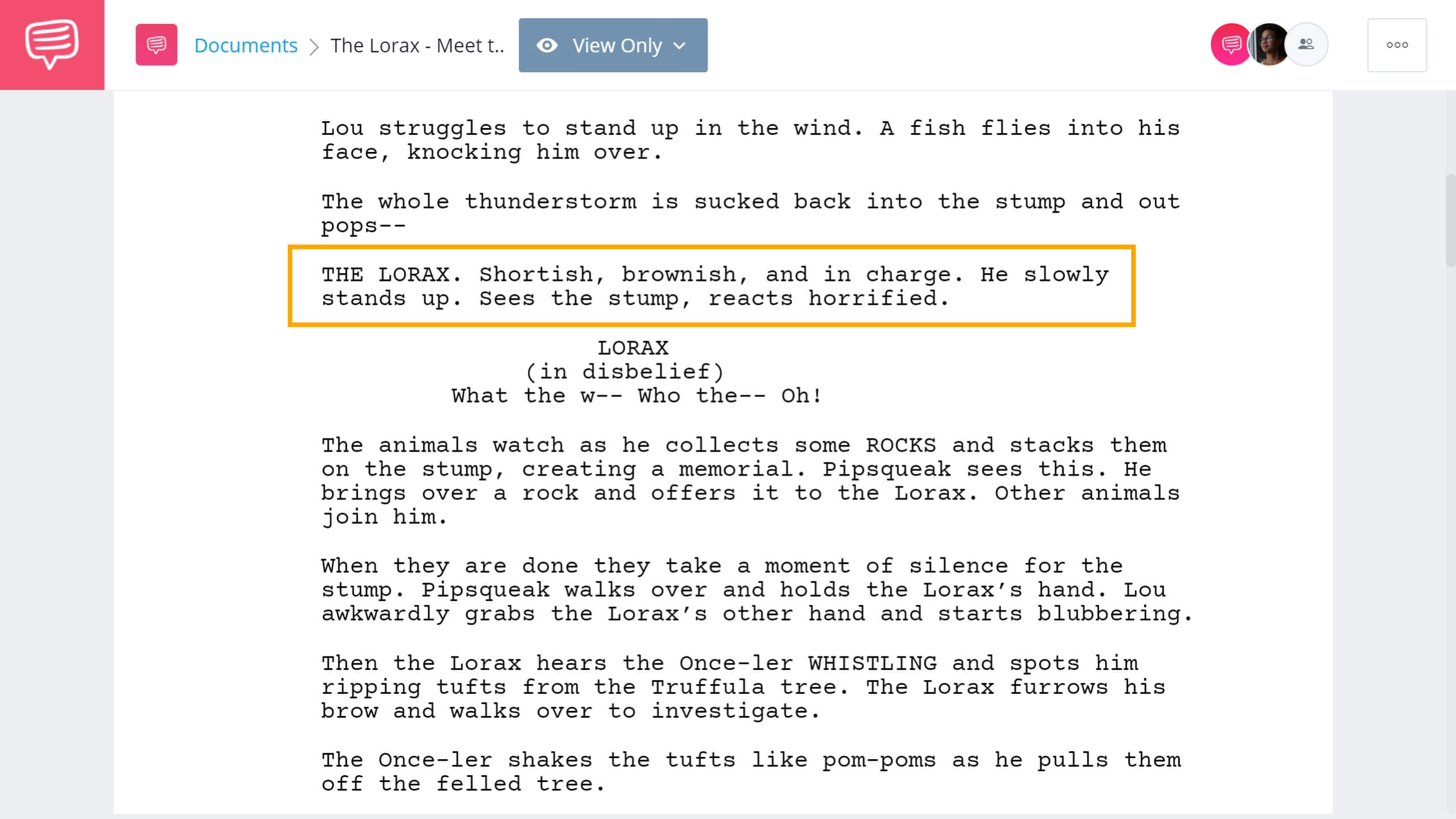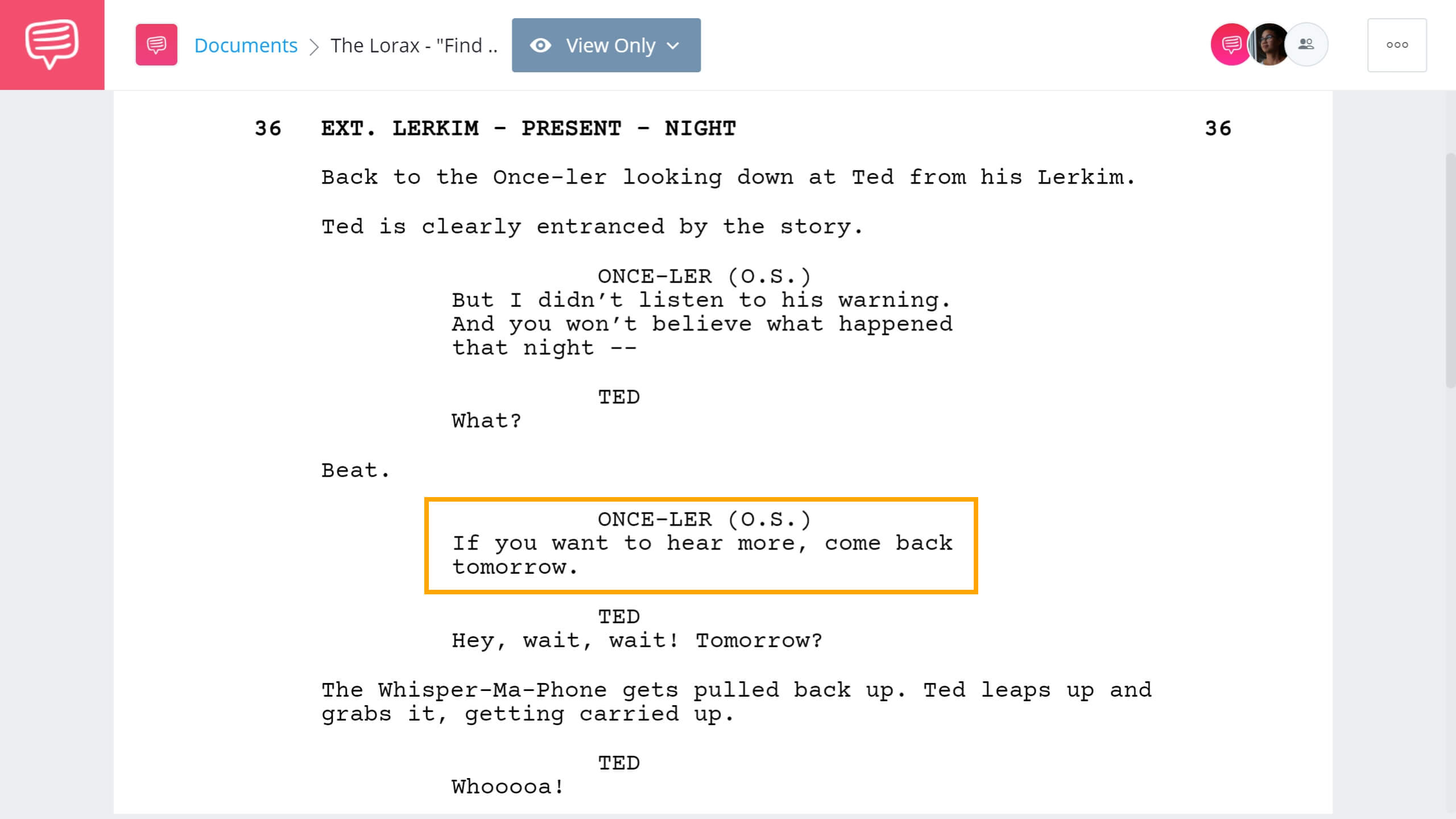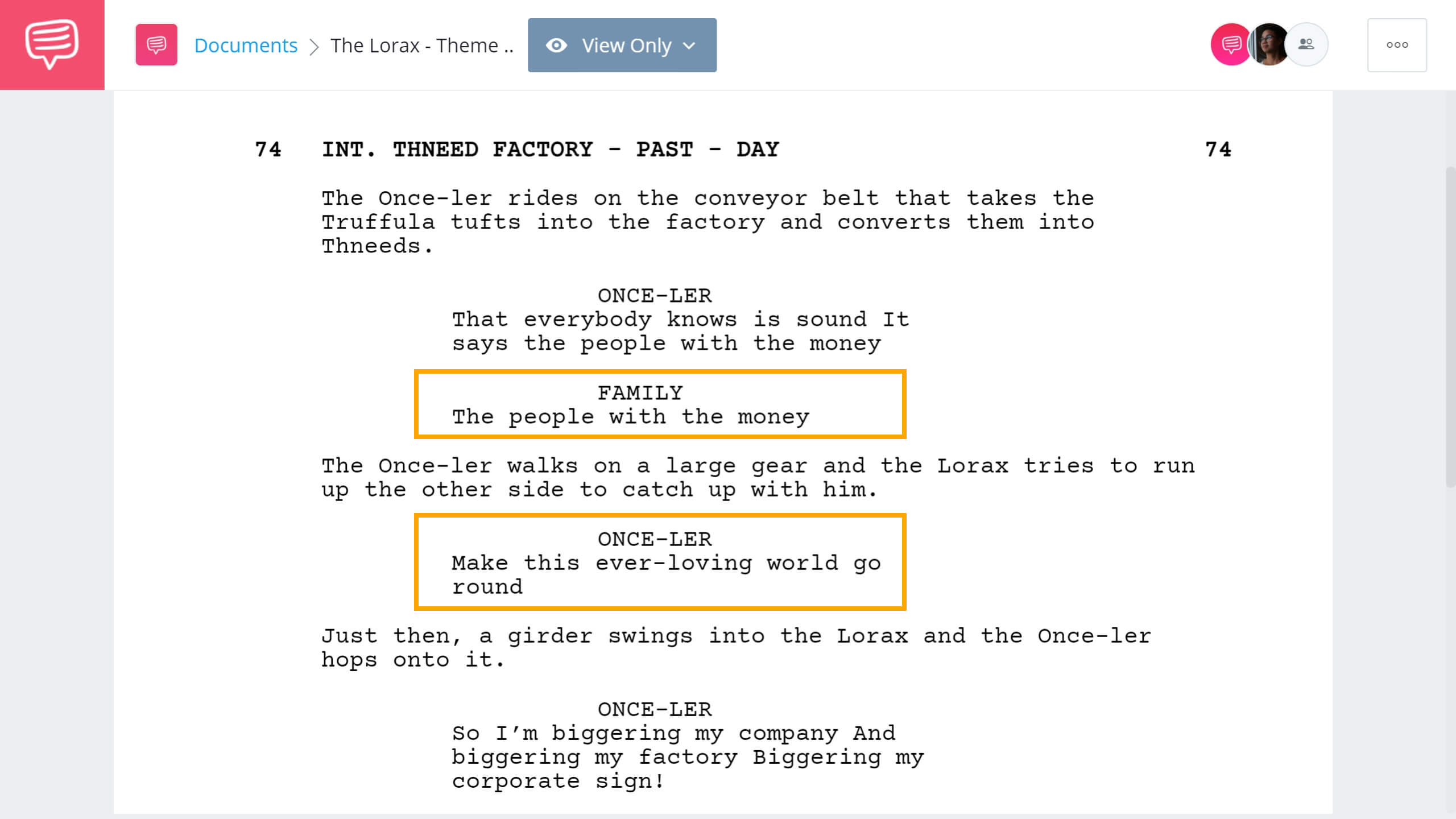Dr. Seuss’ The Lorax is a classic children’s book that doubles as a cautionary environmentalist tale for adults. In 2012, The Lorax was adapted by Illumination Entertainment into a feature film. We’re going to break down the film version of The Lorax by looking at its script. We’re also going to dissect what made The Lorax script succeed as a film adaptation. By the end, you’ll hopefully have a new appreciation for Seuss’ classic book.
WHO WROTE the lorax SCRIPT?
Written by Cinco Paul and Ken Daurio
Cinco Paul is an American screenwriter with credits on upwards of a dozen scripts. Paul was formally trained at USC in the school’s graduate program for screenwriting.
Ken Daurio is an American screenwriter and director who is perhaps best known for his work with Cinco Paul. On his own, Daurio has directed more than 100 music videos.
Paul and Daurio’s credits include but are not limited to: Horton Hears a Who!, Despicable Me, and The Secret Life of Pets.
STORY BREAKDOWN
STRUCTURE OF THE LORAX SCREENPLAY
Here is the story structure for The Lorax screenplay:
Exposition
The Lorax introduces the reader to the town of Thneedville — an industrial city that’s controlled by business magnate, Aloysius O’Hare.
Inciting Incident
A boy named Ted hatches a plan to win over the heart of his crush Audrey by finding a real tree to replace the metal one in her backyard. Ted’s grandmother tells him that he needs to find the Once-ler to learn more about what happened to the trees.
Plot Point One
The Once-ler tells Ted the story of how he deforested the Truffula trees and invoked the wrath of the Lorax by selling Thneed to the denizens of the town next-door.
Rising Action
Ted attracts the attention of O’Hare, who warns him not to talk to the Once-ler because the return of trees would be a threat to his business.
Midpoint
The Once-ler describes how he was whisked away from harvesting the thneed from trees and enticed to chop them down instead.
Plot Point Two
The Once-ler reveals that he destroyed every Truffula tree, forcing the Lorax to leave – and that the Lorax gave him a rock engraved with the word “unless” as a parting gift.
Build Up
The Once-ler gives Ted the last Truffula seed and asks him to plant it.
Climax
Ted and Audrey rush to plant the Truffula seed before O’Hare can stop them.
Finale
The denizens of Thneedville come together to plant the Truffula seed in the middle of town while O’Hare watches helplessly.
Denouement
The Once-ler leaves his cave and tends to the growing trees. The Lorax returns, proud of his former friend. Audrey kisses Ted and all becomes right in the town of Thneedville.
The Lorax Script Takeaway #1
The Lorax characters are heroes
The Lorax may be the name of the story – but he’s actually a pretty minor character in the grand scheme of things. But who is the Lorax? The Lorax is a creature who speaks for the Truffula trees. Actor and comedian Danny DeVito played the title character in the 2012 film The Lorax.
We imported The Lorax screenplay into StudioBinder’s screenwriting software to take a closer look at the Lorax characters and the Lorax's introduction.
Read The Lorax Script • Meet the Lorax Movie Characters
In this scene, the Lorax is given a heroic introduction. “Lightning bolts” and “thunderstorms” mark his dramatic entrance. In many ways, the Lorax is a symbol for primordial nature — but he’s also given a signature Seussian flair. The animators at Illumination attempted to capture the Lorax’s classic design while giving it their own touch. Check out the clip below and let us know how you think they did.
The Lorax Characters • Guardian of the Forest Scene
All in all, I think the animators did a pretty good job — although I think few would refute that it would’ve worked even better in 2-D. But still, the essence of many of The Lorax characters, such as the Once-ler and the Lorax, were captured well by the team at Illumination — and it all started with the script.
The Lorax Script Takeaway #2
The Lorax book vs script
The Lorax movie didn’t receive rave reviews from critics, but I’d argue it wasn’t the script’s fault. Paul and Dario did a great job of expanding Dr. Seuss’ story while still retaining the spirit of the original.
Let’s take a look at a scene in which Paul and Dario utilize screenwriting tactics to elongate the story of the original book. As you’re reading, think about how they justify a somewhat obvious stall tactic with an emotional story beat.
Read The Lorax Movie Script • Find the Emotion in The Lorax Script
Structure plays a huge role in screenwriting. So, how did Paul and Dario turn a picture book into a feature length script? The excerpt above shows how they did it. In Dr. Seuss’ The Lorax, the Once-ler doesn’t make Ted leave and return the next day — in fact, in Dr. Seuss’ version, “Ted” isn’t Ted at all but rather a nameless protagonist.
Paul and Dario knew they needed to make the nameless protagonist a character we can empathize with — and they knew they needed to fit Dr. Seuss’ story into a three-act structure. To do this, they had to elongate the story through screenwriting tactics.
By having the Once-ler force Ted to leave and return the next day, the writers buy more time for the story to develop. But they also use this tactic to develop the Once-ler’s character. In a way, the Once-ler is testing Ted to see if he’s truly the one who’s worthy of the last Truffula seed. All in all, it’s a novel approach to developing a children’s story into a screenplay.
There are some great quotes in both the book and the script. Let’s take a look at a few of the best:
- “I am the Lorax. I speak for the trees. I speak for the trees for the trees have no tongues.”
- “Unless someone like you cares a whole awful lot, nothing is going to get better. It's not.”
- “What I want more than anything is to see a real living tree.”
Dr. Seuss was known for memorable quotes — and The Lorax certainly has some of his best.
The Lorax Script Takeaway #3
The Lorax is an environmental fable
The Lorax may be a children’s story, but that doesn’t mean it doesn’t contain insight for adults too. Quite the contrary actually — many would argue it’s adults who need to heed the fabulist themes of the story more than children.
The Lorax is a quasi-fable about the effect deforestation has on our world’s ecology. In an interview in 2013, screenwriters Paul and Dario expressed this concurrence in saying, “We always want the movies [we write] to be about something, but we never want them to be preachy.”
Paul and Dario’s statement on screenwriting aligns very well with how Dr. Seuss seemed to impart his philosophy on life in literature — so as to say you have to activate the mind of the reader in order to have a strong effect.
Dr. Seuss used the second person point of view to transport the reader into the world of The Lorax. Paul and Dario used satire and music. Let’s dive back into the script to see how they used ironic juxtaposition to convey the Once-ler’s descent into evil.
What is the Theme of The Lorax? • Find Out in the Lorax Film Script
Here, we see the Once-ler groove out to the tune of a business too big to fail. The song “How Bad Can I Be?” is an indictment of corporate inflation and greed. It’s also a tragic swan song for the Lorax and the truffula trees.
The song ends with the last tree being chopped down, and the Lorax is left to wander away because he has no trees to speak for. If you want to see the song in action, check out the clip below.
The Lorax Script to Screen • ‘How Bad Can I Be?’
In the end, the Once-ler understands the implications that his greed has had on the local ecology. He feels shame and remorse for what he’s done – but he knows that the environment can survive if it’s tended to by the right people.
UP NEXT
Read and download more scripts
The Lorax is proof that screenwriters can successfully address themes pertinent to children and adults. If you want to continue reading screenplays, we have similar titles like Coco, Frozen, and The Lion King in our screenplay database. Browse and download PDFs for all of our scripts as you read, write and practice your craft to become the next great screenwriter.
